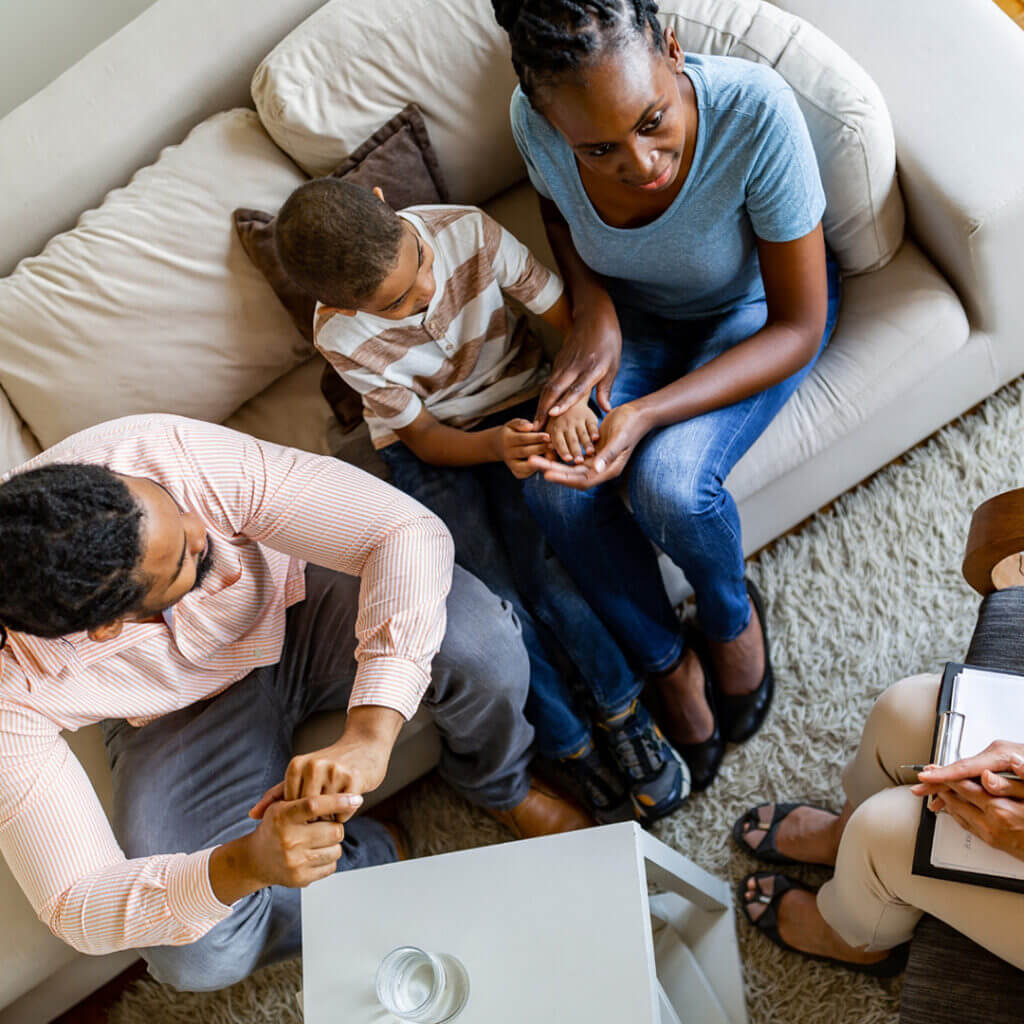Unity is vital in fostering love, understanding, and resilience in the intricate web of relationships. Within couples and families, the agreement serves as a cornerstone, binding individuals together and providing a sense of belonging and support. However, achieving and maintaining unity can be complex, often challenged by communication gaps, conflicts, and differing perspectives. This is where counseling emerges as a powerful tool, offering guidance and techniques to navigate these obstacles and nurture unity within relationships.
In this article, we will delve into the myriad benefits of couples and family counseling, exploring how it can strengthen bonds, enhance communication, and empower individuals to embrace unity. We will also delve into practical strategies that can be implemented to cultivate harmony, both within counseling sessions and beyond, ultimately fostering happier, healthier relationships and families.
Understanding Unity In Relationships
Unity in relationships is the state of harmony, cohesion, and shared purpose among individuals. It goes beyond agreement or compromise, encompassing a deep sense of connection, support, and mutual understanding. Unity in relationships forms the foundation of healthy and thriving partnerships and families characterized by trust, respect, and open communication. It creates a safe and nurturing environment where individuals feel valued and understood, creating greater happiness and fulfillment. Unity strengthens resilience, allowing couples and families to weather storms and overcome challenges together.
Unity in relationships can be challenging due to communication breakdowns, differences in values, beliefs, and expectations, and external stressors. Recognizing and addressing these challenges is crucial for fostering unity. Open communication, empathy, and a shared commitment to growth can nurture unity, leading to more robust, more fulfilling connections. This blog explores the benefits and strategies of couples and family counseling in fostering unity, providing insights and practical guidance for those seeking to embrace it in their relationships.
Benefits Of Couples And Family Counseling
Couples and family counseling is a powerful resource that can transform relationships and bring about positive change. Through the guidance of a skilled therapist, couples, and families can experience numerous benefits that contribute to their overall well-being and unity. Let’s explore some of the critical benefits of couples and family counseling:
Improved Communication And Conflict Resolution
Effective communication is the cornerstone of any healthy relationship. Couples and family counseling provides a safe, structured environment for open and honest communication. Therapists facilitate constructive dialogue, teaching couples and families valuable communication skills such as active listening and expressing needs and emotions. As a result, conflicts can be addressed and resolved more effectively, leading to greater understanding and cooperation.
Strengthened Emotional Connection
Over time, relationships can experience a breakdown in emotional connection. Couples and family counseling help rebuild and strengthen emotional bonds by creating a space for vulnerability and empathy. Therapists guide individuals in expressing their feelings and needs, fostering deeper emotional understanding and connection. This renewed emotional closeness can revitalize relationships and cultivate a sense of intimacy and trust.
Enhanced Problem-Solving Skills
Every relationship faces challenges and obstacles. Couples and family counseling equip individuals with practical problem-solving skills to overcome these difficulties. Therapists teach techniques for identifying and analyzing problems, brainstorming solutions, and making mutually beneficial decisions. By developing these skills, couples, and families can tackle issues collaboratively, fostering a sense of teamwork and resilience.
Increased Empathy And Understanding
One of the primary goals of counseling is to promote empathy and understanding among individuals in relationships. Therapists help couples and families develop the ability to see things from each other’s perspectives, fostering empathy and compassion. This enhanced understanding paves the way for more meaningful and supportive interactions, reducing misunderstandings and conflicts.
Creation Of A Supportive And Harmonious Environment
Couples and family counseling provide a nurturing and non-judgmental environment where individuals can feel heard and validated. Therapists create a safe space for expressing emotions and concerns, allowing couples and families to build a foundation of support and trust. This supportive environment helps foster a harmonious atmosphere at home, promoting healthier interactions and a sense of unity.
Strategies For Embracing Unity Through Counseling
Unity within couples and families is a dynamic process that requires effort and intentionality. Individuals can learn and implement effective strategies to foster unity and strengthen their relationships through counseling. Here are several techniques that can be embraced to cultivate unity:
- Establishing clear goals and expectations: Setting clear goals as a couple or family provides a shared vision and direction for unity. During counseling sessions, couples and families can work together to identify their aspirations and define what unity means to them. This process helps create a roadmap for growth and guides the counseling process.
- Active listening and effective communication techniques: Active listening and effective communication techniques are crucial for healthy relationships. Counseling provides a safe environment for empathizing, validating emotions, and constructively expressing oneself in counseling.
- Building trust and fostering emotional safety: Counseling addresses trust issues, past wounds, and insecurities, creating a secure environment for emotional security and strengthening bonds. Therapists help individuals express emotions and vulnerabilities, fostering stronger bonds in couples and families.
- Developing shared values and common interests: Shared values and interests encourage connection and purpose in couples and families. Counseling helps identify overlaps and strengthens unity by fostering common ground and engaging in activities that bring individuals closer together.
- Collaborative decision-making and problem-solving: Unity thrives when decisions are made collaboratively, considering the needs and perspectives of all family members. Couples and families learn effective problem-solving techniques in counseling, such as brainstorming, active listening, and compromise. Involving everyone in the decision-making process promotes unity, and individuals feel valued and heard.
- Cultivating empathy and understanding: Empathy and compassion are crucial for unity, and counseling encourages individuals to put themselves in their partner’s or family member’s shoes and facilitate discussions to recognize and validate each other’s emotions and experiences.
- Strengthening bonds through quality time and rituals: Counseling sessions help prioritize quality time, engage in connection-building activities, and establish unity-promoting routines like family meals, game nights, and shared hobbies. These activities foster shared experiences and deepen the sense of togetherness within couples and families.
Finding The Right Couples And Family Counselor
Selecting the right counselor is crucial for couples and family counseling, as their qualifications and experience significantly impact the process’s effectiveness. This section discusses factors to consider when selecting a counselor, tips for initiating counseling, and maximizing its effectiveness.
Importance of a Qualified and Experienced Counselor
A qualified and experienced counselor brings invaluable expertise to the table. Couples and family dynamics can be complex, and a skilled counselor possesses the knowledge and training to navigate these complexities effectively. They understand the nuances of relationships, possess therapeutic skills, and can offer evidence-based strategies tailored to your needs. Moreover, an experienced counselor has likely worked with diverse clients, enabling them to draw from a wealth of insights and approaches to addressing your unique challenges.
Factors to Consider When Selecting a Counselor
Consider seeking counselors with appropriate credentials and specialization, such as LMFTs or LPCs, and a focus on couples and family therapy. Establishing a solid rapport with the counselor is crucial for open communication and a safe environment. Research their preferred therapeutic approaches, such as cognitive-behavioral, emotionally focused, or solution-focused therapy, to ensure they align with your preferences and goals. Consider availability and accessibility, as counseling requires commitment, and find a counselor who can accommodate your schedule and location preferences for consistent attendance. Seek client testimonials or referrals from trusted sources, such as friends, family, or healthcare professionals, to gain insight into the counselor’s effectiveness and compatibility.
Tips for Initiating Counseling and Maximizing Its Effectiveness
- Clarify Your Goals: Before starting counseling, clarify your individual and relationship goals. Clearly articulate what you hope to achieve through counseling, whether it’s improved communication, conflict resolution, or rebuilding trust. Sharing these goals with your counselor will help them tailor the sessions to your needs.
- Open and Honest Communication: Be honest with your counselor during counseling sessions. Share your thoughts, emotions, and concerns without holding back. Remember that the counseling process is a safe space for exploration and growth, and your counselor is there to support you.
- Active Participation: Actively engage in counseling by participating fully in exercises, discussions, and homework assignments. The more effort you put into the process, the more you will benefit.
- Practice Outside the Sessions: Apply the strategies and techniques learned in counseling to your daily life. Practicing new communication skills, conflict-resolution techniques, and relationship-building exercises will help solidify positive changes and improve your relationship dynamics over time.
- Patience and Persistence: Relationships take time and effort to transform. Understand that progress may not happen overnight, and setbacks may occur. Be patient with yourself and your partner, and commit to growth and unity.
Embracing Unity Beyond Counseling
Couples and family counseling is crucial for fostering unity in relationships, but it’s essential to continue building bonds outside therapy. This article explores three key aspects: continuing unity-building practices, incorporating self-care and individual growth, and seeking ongoing support and resources for long-term unity.
Continuation of Unity-Building Practices
Unity-building practices initiated and reinforced during counseling sessions should be carried forward into everyday life. Consistency is crucial in maintaining a sense of togetherness and solidarity. This can involve regular check-ins, where couples and families dedicate time to communicate openly, express gratitude, and address emerging concerns. Sharing activities, such as hobbies, outings, or family rituals, can also strengthen bonds and create lasting memories. Additionally, fostering a culture of appreciation and respect within the household can contribute to an environment where unity thrives.
Incorporating Self-Care and Individual Growth
Unity within relationships is not solely reliant on the collective well-being but also on the individual growth and self-care of each person involved. Encouraging self-reflection and personal development can enhance unity. Individuals should prioritize self-care activities that nurture their physical, emotional, and mental well-being. This can include exercise, meditation, engaging in hobbies, or seeking therapy individually. By tending to their needs and personal growth, individuals can bring a stronger sense of self to the relationship, contributing positively to unity.
Seeking Ongoing Support and Resources
Counseling and seeking ongoing support and resources can help maintain long-term unity in couples and families. Explore support groups, workshops, online communities, books, podcasts, and educational materials for relationship-building and communication skills. Maintaining a network of trusted friends and mentors can offer external perspectives and resources, strengthening unity.





